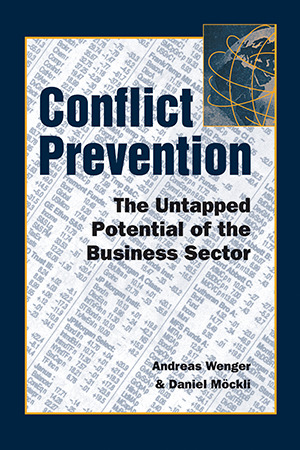
- 2002/233 pages
Conflict Prevention:
The Untapped Potential of the Business Sector
Hardcover: $65.00
ISBN: 978-1-58826-136-6
Despite intensive international efforts in the area of conflict prevention, there is still little agreement about how civil wars might best be averted. And, as the news regularly reminds us, the many attempts at preventive action have not been strikingly successful. The authors of Conflict Prevention offer a new perspective, arguing that such efforts could be much more effective if they incorporated the business sector.
Andreas Wenger and Daniel Möckli examine the qualities that the business sector could bring to bear in the prevention of deadly intrastate conflict. They also propose specific ways in which businesses might be engaged in prevention efforts—and show why it is in the interests of corporations to participate. Calling for a cooperative approach that involves states, international organizations, NGOs, and corporations, they demonstrate that the business sector has both the means and the motivation to ensure the long-term success of prevention efforts.
Andreas Wenger and Daniel Möckli examine the qualities that the business sector could bring to bear in the prevention of deadly intrastate conflict. They also propose specific ways in which businesses might be engaged in prevention efforts—and show why it is in the interests of corporations to participate. Calling for a cooperative approach that involves states, international organizations, NGOs, and corporations, they demonstrate that the business sector has both the means and the motivation to ensure the long-term success of prevention efforts.







